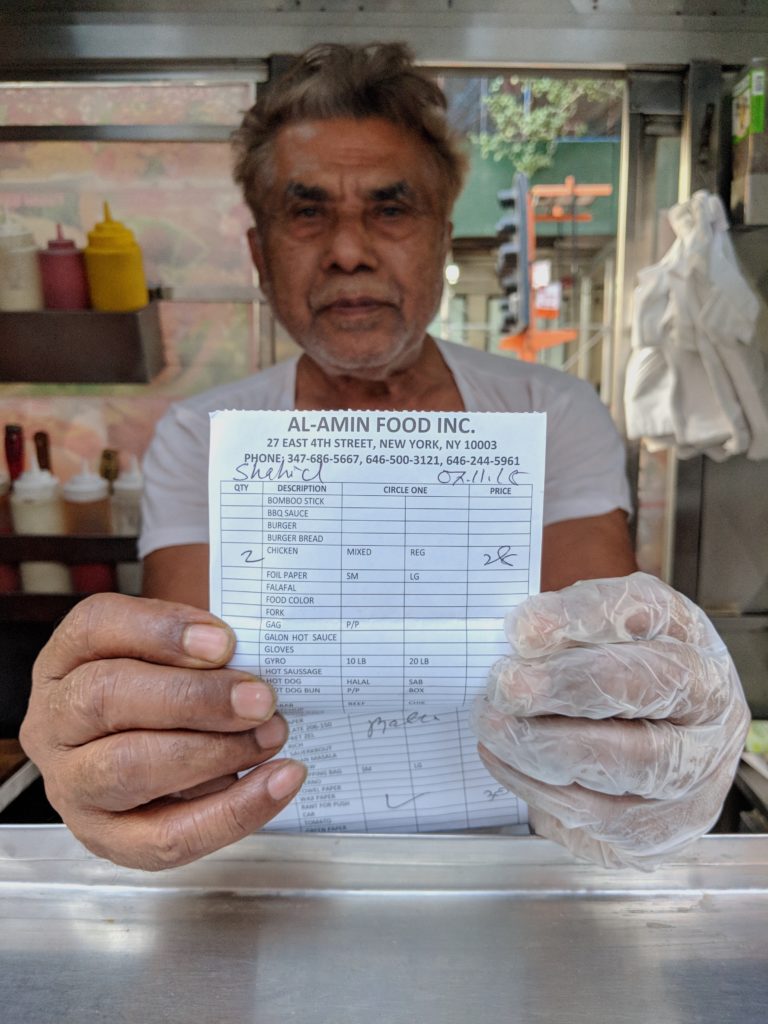Viewpoints
Food Vendors Balk at Styrofoam Ban
By Dan Hu
Spectrum staff
Some food cart merchants are concerned that a Styrofoam ban, taking effect on Jan. 1, will lower their take-home pay. The higher costs of paper, aluminum and other allowed food containers will cut into their earnings, they said.
Halal food cart merchant Mia Lat said his cart will be switching to aluminum packaging in 2019. Al-Amin Food Inc. owns the cart Lat uses, and gives him $100 a day out of whatever the cart sells.
Valentin Peralta who serves several Mexican dishes, mainly to NYU students, from a Sidewalk Tacos food truck, said he expects he will have to work more to cover the container costs to keep his current income of $700 a week. “Instead of taking two days off, I have to take one day off,” Peralta said, while moving Gatorade and Coke cans from one shelf to another inside the truck. “That will be one day less with my family, and that’s something that [I] look forward to five days a week.”
The New York City Council proposed the Styrofoam ban in 2013. But packaging companies, arguing that Styrofoam was recyclable, sued to block the ban. City officials counter-argued in a Department of Sanitation’s report that while Styrofoam is recyclable, it “cannot be recycled in a manner that is economically feasible or environmentally effective for New York City.” In June 2018, New York State Supreme Court Judge Margaret Chan ruled in the city’s favor.
On the city’s website, Department of Sanitation Commissioner Kathryn Garcia announced: “This necessary step will help us as we continue to move towards our goal of sending zero waste to landfills.”
New York City Councilman Rafael Espinal Jr., who also championed a plastic straw ban bill earlier this year, said, “It has become increasingly clear that Styrofoam cannot be recycled and that these items are contributing to our global waste problem.”
Dart Container Corp., one of the packaging companies that sued to block the ban, did not respond to this reporter’s calls or an email to give that firm’s take on the new rule.
One food vendor, who asked to remain anonymous because he does not own his cart, said he also makes $100 a day. He does wonder what the ban will mean for him. But he had more pressing concerns one day in July. “Business is slow,” he said, from the halal cart he had parked on the northeast corner of Prince Street and Broadway.
Awal Mohammed, a food cart operator for Jasmine Hall Food, said his cart would switch to paper containers instead of Styrofoam. He chose to not disclose his salary.
Some vendors said they have no choice but to obey the new law. They hope for the best. “I understand that we have to protect the earth,” said Peralta, of Sidewalk Tacos. “But, instead of banning it, I wish there was a way of reusing it, somehow.”


